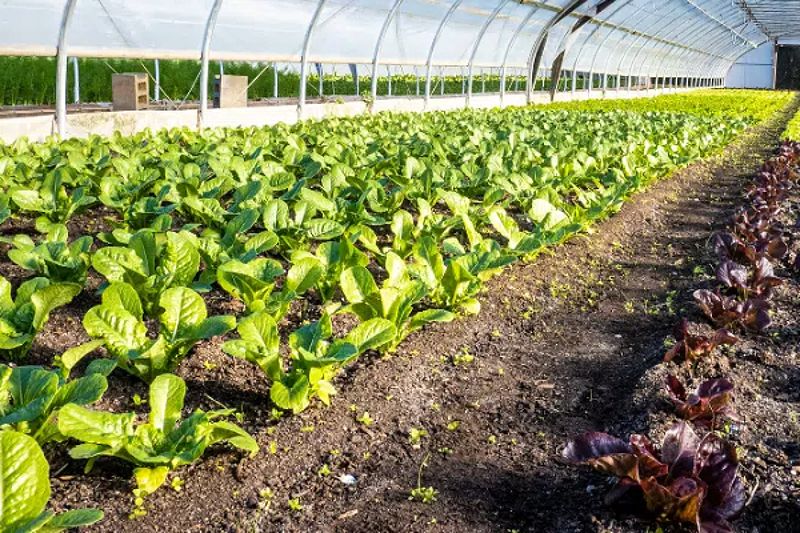Learn about the benefits of organic farming, including nutritious and chemical-free food, lower greenhouse gas emissions, and rural development opportunities. Transitioning to organic farming can contribute to sustainable food production and address climate change.
The Benefits of Organic Farming: Promoting Sustainability and Health
Organic farming has gained significant attention in recent years due to its potential positive impact on sustainable food production and its ability to address environmental concerns associated with conventional agriculture. This low-input approach relies on ecologically sound practices and avoids the use of chemical inputs and synthetic fertilizers.

( Credit to: Dailyexpress )
The need for a sustainable food production system has become more urgent as global living standards improve and consumption patterns shift. However, traditional agricultural methods face challenges such as soil depletion, urbanization, and the impacts of climate change, which limit their efficiency. Organic farming offers a promising solution by reducing reliance on external resources and promoting sustainability.
Nutritious and Healthful Food
One of the key advantages of organic farming is the production of nutritious and healthful food. Organic products are free from harmful chemicals and artificial pesticides, making them a safer option for consumers. By avoiding the use of synthetic inputs, organic farming ensures that the food produced is free from residues that can be harmful to human health.
Research has shown that organic crops tend to have higher levels of certain nutrients, such as vitamins, minerals, and antioxidants, compared to conventionally grown crops. This is due to the focus on improving soil fertility and providing plants with natural sources of nutrients. As a result, organic food not only provides sustenance but also offers additional health benefits.
Reduced Greenhouse Gas Emissions and Climate Resilience
Another significant advantage of organic farming is its potential to lower greenhouse gas emissions. Organic farming uses fewer fossil fuels per unit of land and crop yield compared to conventional methods. By relying on natural techniques and minimizing the use of machinery and synthetic inputs, organic farming reduces its carbon footprint.
Furthermore, organic farming practices focus on improving soil fertility and promoting biodiversity. This enhances the soil’s capacity to hold moisture, making organic farming more resilient to climate change. The preservation of soil organic matter and the sequestration of CO2 in the soil contribute to mitigating climate change impacts and creating a more sustainable agricultural system.
Promoting Agroforestry and Protecting Groundwater
Organic farming practices also promote agroforestry production systems, which demonstrate flexibility in response to climate change. By incorporating trees into agricultural landscapes, organic farmers create diverse and resilient ecosystems. This not only helps in mitigating climate change but also provides additional benefits such as shade, windbreaks, and habitat for beneficial organisms.
In addition, organic farming prohibits the use of synthetic fertilizers and pesticides, which helps protect groundwater streams from pollution. Instead, organic farmers utilize organic fertilizers and promote greater biodiversity, which enhances soil structure and reduces the likelihood of groundwater pollution. By safeguarding water resources, organic farming contributes to the overall health of ecosystems.
Rural Development and Increased Accessibility
Aside from its environmental benefits, organic farming also contributes to rural development. It creates jobs, generates income, and fosters the advancement of new technologies and local knowledge. The growing demand for organic food has led to an expansion of the organic farming sector, making organic products more affordable and accessible to a wider audience.
Moreover, organic farming supports local economies by reducing reliance on food imports and promoting local food production. This not only strengthens local communities but also enhances food security and reduces the carbon footprint associated with long-distance transportation.
Conclusion
Organic farming offers a sustainable and environmentally friendly alternative to conventional agriculture. Its reliance on natural techniques, avoidance of chemical inputs, and focus on soil fertility and biodiversity contribute to addressing climate change and promoting sustainable food production. As the demand for organic products continues to grow, organic farming is becoming more accessible and affordable, benefiting both consumers and the environment.
